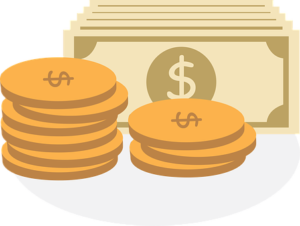Medical expenses can be a major burden on your finances, especially when caught off guard by an unexpected medical emergency. This is especially if you’re still not eligible for Medicare Plan N. Whether it’s for surgery, treatment, or medication costs, finding the right financial support is crucial to ensure that you get the medical care you need with nothing that can break the bank.
That’s where medical loans come in handy! But how do you know which loan works best for your needs? In this blog post, we’ll take a look at key factors to consider when choosing the perfect medical loan that fits your budget and circumstances. So sit tight, and let’s dive into how to find the best loan for your medical needs.
The Loan’s Annual Percentage Rate
 When about to borrow money, the APR should never be overlooked. This is because the APR represents the true cost of borrowing that includes both interest and any additional fees associated with a loan. For medical loans, it pays to compare APRs from various different lenders to get the best deal. A lower APR means you’ll pay less in interest charges over time, which can save you significant amounts of money. It’s worth noting that your credit score will also affect your APR – generally speaking, borrowers with higher credit scores are offered better rates than those with poor or fair credit.
When about to borrow money, the APR should never be overlooked. This is because the APR represents the true cost of borrowing that includes both interest and any additional fees associated with a loan. For medical loans, it pays to compare APRs from various different lenders to get the best deal. A lower APR means you’ll pay less in interest charges over time, which can save you significant amounts of money. It’s worth noting that your credit score will also affect your APR – generally speaking, borrowers with higher credit scores are offered better rates than those with poor or fair credit.
Fixed or Variable Rates
When considering a medical loan, one of the factors you should consider is whether to opt for fixed or variable interest rates. Fixed-rate loans offer the same interest rate throughout the life of the loan. This means that your monthly payments remain unchanged, making it easier to budget and plan. On the other hand, variable-rate loans fluctuate over time according to market conditions. Variable rates can be much tinier than fixed rates in the short term but carry more risk since they can increase over time and make your monthly payments unpredictable. If you don’t plan to pay off for years, a variable rate may be worth considering, as you could save money on interest charges.
The Loan Term
Of course, the loan term should be on this list. It’s usually expressed in months or years. The length of your loan term can impact your monthly payments and interest you’ll pay over time. If you choose a longer-term, your monthly payments will be lower, but you’ll end up paying more interest in the long run. Meanwhile, if you choose a shorter term, your monthly payments will be sky higher, but you’ll save on interest costs. When choosing a loan term, ensure it suits your financial situation and goals. Consider factors such as income stability and job security when deciding how long a repayment period is right for you.
The Origination Fee
 When considering medical loans, don’t forget to take into account the origination fee. This fee is a one-time fee charged by lenders for processing and initiating the loan, ranging from 1% to 8% of the total. At first, it’s only like an extra expense, but note that various lenders may offer much lower rates but with a higher origination fee. So check if the lender charges any prepayment penalties or other hidden fees that could increase your overall expenses. Don’t hesitate to ask questions about these fees before signing up for a medical loan. Finding the best medical loan for your needs requires careful consideration of the abovementioned factors.
When considering medical loans, don’t forget to take into account the origination fee. This fee is a one-time fee charged by lenders for processing and initiating the loan, ranging from 1% to 8% of the total. At first, it’s only like an extra expense, but note that various lenders may offer much lower rates but with a higher origination fee. So check if the lender charges any prepayment penalties or other hidden fees that could increase your overall expenses. Don’t hesitate to ask questions about these fees before signing up for a medical loan. Finding the best medical loan for your needs requires careful consideration of the abovementioned factors.
The annual percentage rate, fixed or variable rates, loan term, origination fee, and speed of processing are all key aspects to remember when choosing a lender. Don’t rush into any decisions without doing your due diligence!






 This can be defined as a short-term loan that is free to allow you to access your tax refund sooner. Ideally, the amount of money you get is based on the expected tax refund. You need to file your taxes by the same tax-prep company ahead of the refund deadline. Usually, you may get the money the same day or wait for 24 hours. However, some tax returns take quite long to review, and the money is sent within three weeks.
This can be defined as a short-term loan that is free to allow you to access your tax refund sooner. Ideally, the amount of money you get is based on the expected tax refund. You need to file your taxes by the same tax-prep company ahead of the refund deadline. Usually, you may get the money the same day or wait for 24 hours. However, some tax returns take quite long to review, and the money is sent within three weeks. Most tax preparation companies will provide you with a tax loan without fees or interest. However, they are likely to charge the preparation feels to process the loan or file your taxes. Thus, such costs will reduce your expected tax refunds. There is free tax software that can help you file taxes online. Moreover, your tax refund loan is likely to be issued on a debit card. Thus, the card may have its associated fees. Sometimes you may get a higher loan than the tax refund because of a miscalculation by the tax preparation company.
Most tax preparation companies will provide you with a tax loan without fees or interest. However, they are likely to charge the preparation feels to process the loan or file your taxes. Thus, such costs will reduce your expected tax refunds. There is free tax software that can help you file taxes online. Moreover, your tax refund loan is likely to be issued on a debit card. Thus, the card may have its associated fees. Sometimes you may get a higher loan than the tax refund because of a miscalculation by the tax preparation company.